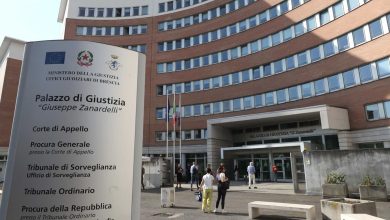
If healthcare forgets innovation. The new pharmaceutical governance according to Pani
The Minister of Health Giulia Grillo shared the document on pharmaceutical governance which dictates new rules for healthcare and the pharmaceutical sector. Two billion euros are the cuts envisaged in the document, which aims to improve the sustainability of the national health system. But is there really this saving margin? And does the Document take into account the great innovative scope that the pharmaceutical sector brings with it? To find out more, we spoke to Luke Pani, pharmacologist, physician, psychiatrist, scientist, molecular biology expert and former director general of theItalian drug agency (Aifa)
What does the new document on pharmaceutical governance promote and what does it reject?
The document contains points of governance which are nothing new and have attracted the attention in various capacities of practically all the general managers of AIFA, including myself. Moreover, in many passages, it is an absolutely ordinary activity of the Agency,  even if this is not adequately perceived externally from a technical point of view. I am very pleased that the document establishes governance topics such as the price-volume agreements to which I wanted to give the first application on a large scale and with a great economic impact precisely with innovative medicines for the treatment of hepatitis C; without that agreement to date we would have spent well over double what we have since spent.
even if this is not adequately perceived externally from a technical point of view. I am very pleased that the document establishes governance topics such as the price-volume agreements to which I wanted to give the first application on a large scale and with a great economic impact precisely with innovative medicines for the treatment of hepatitis C; without that agreement to date we would have spent well over double what we have since spent.
However? There seems to be a but…
Yes, because having said that, I think that price-volume agreements are rudimentary if not frankly trivial for managing the new therapies on the way. In fact, what worries me the most is the re-proposition of a vision of pharmacology that is now totally outdated. A vision that rests on logics that were perhaps good for governing the pharmaceutical market in the last century and that seem to ignore how and how much the research and development of new medicines has completely changed. Aifa promotes and protects the health of citizens through the appropriate and conscious use of medicines and instead, putting it under obsolete economic constraints, the availability of medicines will mathematically be delayed and patients who could have a better prognosis will be excluded from treatment.
Minister Grillo spoke of savings of approximately 2 billion euros. Do you think there is room for such savings?
There is always room for savings, I hope that whoever made the Minister make such a high-sounding statement has provided detailed measurement parameters to monitor savings, otherwise it's a shot in the wind. The important thing is to be aware that saving on medicines generates two potentially dangerous consequences for the economy.
Which?
The first is the direct or indirect price cut on turnover, which makes Italy an unattractive country in terms of even very advanced clinical trials (in which drugs paid for by pharmaceutical companies are used to try to treat patients generally without alternatives treatment). Furthermore, in the case of multinationals, it significantly penalizes investments in national subsidiaries (and incidentally in favor of its employees) compared to those in other countries. Even if I have always thought, and still believe, that the employment rates of the national drug industry shouldn't interfere with the negotiations in AIFA, not taking all of this into account in the post-Brexit scenario is yet another proof of myopia technique and politics.
Explain to us better…
England is the first country for Phase 1 clinical trials, the second for those in Phase 2 and the third for those in Phase 3. In three months all these economic and scientific resources will be allocated elsewhere. Who wrote the document knows this? And do you know how many hundreds of millions of euros a year all this is worth?
And the second problem?
The second problem is the cut in consumption, when the consumption of an effective medicine is hindered, the standards of health protection are reduced. This is a certain consequence for high-priced medicines that could not be purchased by the ordinary citizen out of pocket. So the real question is, beyond the reliability of the forecast which will have to be verified and on which I have enormous doubts, is who will really pay these 2 billion euros?
We talk more and more often about the sustainability of the national health system, understandably. But speaking only of an economic criterion, aren't we losing sight of the centrality of the patient, with all his peculiarities?
It seems to me that on the one hand the centrality of the patient is being proclaimed in order to pitch those who want to believe in it, while on the other hand regulations are being signed which in recent years have actually defunded the NHS. If we were talking about value criteria instead of cost, it would already be a positive argument, as we wrote recently with Gilberto Corbellini (cf. Prescribe value. History and science of drugs that make you live longer and better, Edra, Milan 2017). The point is that inadequate funding is also a damage to patient centricity.
In the past you have complained about the fact that the issue of pharmaceutical governance is addressed in Italy only in economic or administrative terms while more attention should be focused on the field of health and innovation. Does it look like it's been done?
It is said with a somewhat cloying joke that the fate of the Regulators belongs to the unhappy ones: if they approve the medicines too quickly it is  because they are friends of Big-Pharma while, if they approve them too slowly, it is because they are enemies of the patients. Tertium non datur. I don't think, however, that we can refer to the regulators/payers who in Italy have sat, always the same ones for decades, on commissions and committees that are old-fashioned both in terms of knowledge and in procedures or those who struggle to rewrite guidelines that recommend the obvious and ignore the future that appears at the speed of light. Both are not suitable and others around I see very few. This will be a problem because, as I said, new medicinal products have preparations, formulations and administrations that are totally different from those we have been used to in the last 50 years and we need to be very competent to give them a correct scientific and economic evaluation.
because they are friends of Big-Pharma while, if they approve them too slowly, it is because they are enemies of the patients. Tertium non datur. I don't think, however, that we can refer to the regulators/payers who in Italy have sat, always the same ones for decades, on commissions and committees that are old-fashioned both in terms of knowledge and in procedures or those who struggle to rewrite guidelines that recommend the obvious and ignore the future that appears at the speed of light. Both are not suitable and others around I see very few. This will be a problem because, as I said, new medicinal products have preparations, formulations and administrations that are totally different from those we have been used to in the last 50 years and we need to be very competent to give them a correct scientific and economic evaluation.
So what should be done?
I wrote the first algorithm for evaluating innovation a month after I took office in December 2011; although it was widely discussed in the commissions and in the Board of Directors it was always difficult to implement it due to the strong opposition of those who still sit in the same places today. To start talking about innovation it would be necessary to renew those who have the task of defining it and to recruit professionals with rigorous and up-to-date skills and above all young people. I must admit that I have not been able to change this vision, which is actually very far from the patient's interest and has its strong roots in a thousand bureaucratic-administrative streams and opposing national and local political interests.
In the past, you have spoken of the importance of adopting, where innovation allows, increasingly personalized and even targeted treatments for the individual patient. However, does the document on pharmaceutical governance not seem to go in this direction? What do you think?
In fact, I am quite perplexed that a document of this magnitude does not address the critical issues in the management of the new Car-T therapies that have arrived and those that will arrive. There are hundreds of therapies of this kind that will be scrutinized by regulators and payers in the next 3-5 years. Even if they fail, unfortunately for patients, the 90%, what remains are enough to break the bank if not regulated by modern governance. There is no trace of it in this document. How is it possible? They are all therapies that have a very high price and for which, differently from the wording of the document, it is absolutely not said that at the moment in which they are authorized there is all the evidence of an "added therapeutic value" to which we are accustomed but which, maybe they save the lives of patients who would have no alternative. The concept of risk management is not even mentioned, yet we published a paper on these concepts in January (Sustainable Reimbursements: Towards a Unified Framework for Pricing Drugs with Significant Uncertainties) and yesterday another operative came out on The Catalyst of the New England Journal of Medicine.
In letter T of the Document, the establishment of a permanent consultation table with patient associations is proposed; those same associations which, however, were not heard before the drafting of the document. Wouldn't it have been better to involve them earlier?
I have always supported patient involvement, even if decisions must always be made on solid scientific criteria. I believe that the Stamina affair was a forward-looking example of how important it is not to follow anecdotal cases or social emotion. On the other hand, I think that the involvement of patients in decisions is the true guarantee of respect for the patient's centrality. I have not found a detailed description of how all this can be implemented in compliance with the GDPR and it would have been useful to understand if the Agency intends to use the data generated by mobile devices as many other regulators are doing, starting with the FDA here in America. But I repeat, everyone is free to write what they want, but at least for me this is not a modern document so I'm not surprised that there is nothing new.
Minister Grillo said that “Current knowledge is such as to guarantee the overlap in terms of efficacy and safety between originator drugs and biosimilars. All in full compliance with the rules that provide for the doctor's freedom of prescribing choice". But if the choice of the biosimilar is somehow imposed for economic reasons, where is the prescriptive freedom?
Undoubtedly we would all like to have full freedom in our choices, without worrying about how much we spend. However, everyday reality tells us that resources are defined and therefore prescriptive freedom must necessarily be mediated also through economic aspects. On a social level it is not ethically acceptable to prescribe anything if it has been shown to be equally effective and safe, subtracting resources from equally or even more seriously ill patients. I think that prescriptive freedom, if solidly argued, is always guaranteed. However, as a pharmacologist I must point out that it would be imprudent to equate the substitution of a biological/biosimilar medicine with that of non-biological/generic medicines. The fact that switch studies have highlighted the safety of switching from a biological drug to its biosimilar simply testifies that the regulatory system managed by the EMA and the FDA works effectively.





